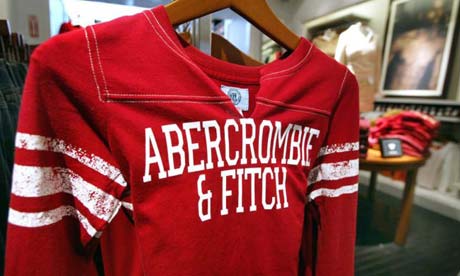The US government has accused clothing retailer Abercrombie & Fitch of discriminating against a Muslim teenager by denying her a sales job because she wears a headscarf.
In a lawsuit in federal court, the US equal employment opportunity commission said that 18-year-old Samantha Elauf of Tulsa, Oklahoma was turned down for a sales position because her hijab violated Abercrombie & Fitch's "look policy" for sales staff.
"The discrimination that took place flies in the face of what America stands for," said Razi Hashmi, executive director of the Oklahoma Council for American-Islamic Relations, which helped Elauf file her initial complaint. "We stand for pluralism and freedom, and especially freedom of religion."
The retail giant declined to comment on the suit but a spokeswoman said the company was confident it had followed the law. She said: "We have a strong equal employment opportunity policy and we accommodate religious beliefs and practices when possible."
In June 2008 Elauf was interviewed for a position at Abercrombie Kids shop at a shopping mall in Tulsa. Michelle Robertson, an attorney with the commission, said Elauf typically wears a black headscarf but would have been happy to wear a different colour to accommodate the "look policy", but the company barred all such coverings.
"Abercrombie and Fitch should make exceptions to its policy when needed and we don't believe it would be an undue burden on the company," Robertson said.
The youth-oriented retailer describes its brands as "rooted in east coast traditions and Ivy League heritage‚" and as "the essence of privilege".
The retailer operates 1,127 stores, including four in the UK, and its alleged employment practices have landed it in previous legal trouble on both sides of the Atlantic.
Last month a British woman with a prosthetic arm was awarded £9,000 after an employment tribunal found she was dismissed from a Savile Row store because her prosthesis and the sweater she used to hide it violated the policy.
A Christian woman from Missouri sued the company in 2007, saying that she was fired from one of its Hollister brand stores because her religious beliefs forbid her to wear pants or a short skirt.
In 2004 the retailer agreed to revamp its hiring and to pay $40m to settle three lawsuits accusing it of discriminating against minorities in order to maintain an all-white image.
